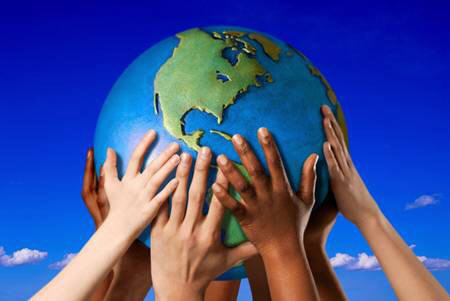World Day for Cultural Diversity for Dialogue and Development

By Vusala Abbasova
In a time of worldwide integration, culture interchange is a priceless commodity in view of leading and promoting harmony and interaction between counties.
We live in a multinational world where each culture is individual and each culture has its own national peculiarities.
May 21 marks the World Day for Cultural Diversity for Dialogue and Development that UNESCO announced in 2001 based on the Universal Declaration on Cultural Diversity, and the UN General Assembly resolution 57/249 issued in December 2002.
The day provides us with an opportunity to deepen our understanding of the values of cultural diversity and to learn to live together better.
"In a diverse world, the destruction of cultures is a crime, and uniformity is a dead-end: our aim must be to enhance, in one movement, the diversity that enriches us and the human rights that bring us together," said Irina Bokova, Director-General of UNESCO.
The UN General Assembly staged a day-long debate on “Culture and sustainable development in the post 2015 development agenda” on May 5, 2014 where many speakers underscored through country level testimonies and global data how culture, in its manifold expressions, ranging from cultural heritage to creative industries, from sustainable tourism to cultural infrastructure, drives and enables the social, environmental and economic pillars of sustainable development.
Recently within the concepts of globalization, nations only tend to focus their attention on economic, ideological and military factors.
Currently, the process of globalization implies a complex of interconnected and interdependent processes which contains all spheres of human activity, including culture.
Day by day the globalization becomes accelerated in its interpenetration with culture internationalization. This process may serve the European Union that brings together 28 European countries, for instance. Initially, the idea of consolidation implies the economic and political integration, which further surged into a process of culture interpenetration.
The culture in modern European countries is not only the basis of society formation but also a part of national external policy. The cultural exchange between the EU member-states has a direct impact on the level and intensity of bilateral relations development.
However, the importance of international integration between the EU member-states hasn't been realized since the beginning of the Union formation. The interest toward cultural collaboration came out in the EU only in 1970s and achieved its legacy by signing the Maastricht treaty in 1992.
"If we had to do it all over again, we would start with culture," said Jean Monet, the French statesman, who was one of the co-founders of the EU, often referred to as the "Father of Europe".
The processes of globalization, extension and immigration make the EU a multicultural community. In spite of many years of cultural collaboration development the EU still doesn't have a lasting multicultural alliance.
One of the aspects enhancing the process of national collaboration is language.
Language, as a part of national culture is most vulnerable to global changes in human community because some languages displace other languages from the world stage. This negatively effects on the national characteristics of a country.
Moreover, the English language has become the international language that promotes the realization of international collaboration.
Science and education are only a part of the culture, at the same time it is the most important part that stays between knowing and unknowing. Science researches promote human culture in the time of world globalization. Global science is not only the migration of ideas and scientists, but also interstate contacts and supranational science projects. Globalization allows taking some constraints on growth and development research as part of the cultural space.
The cultural diversity characterizes the current state of the world cultural space. The safety of it isn't guaranteed. Many scientists and intellectuals are worried about the potential cultural losses related to changes in the globalization of world civilization. The conditional desire of one part of mankind to dominate others, the globalization that is associated with the spread of its culture over the rest of the space causes a distance and reluctance and thus blurs one's own cultural identity. This is what has led to civilization tensions.
Azerbaijan has actively worked toward the promotion of cultural diversity. Azerbaijanis also demonstrate their hospitality and iridescence toward foreigners. Now, when Azerbaijan has become one of the most popular world tourism areas, the country receives guests from all over the world. All have praised the country's ability to make room for all cultures.
Every one of us should collaborate in this Day, regardless of where in the worlds we are living.
---
Follow us on Twitter @AzerNewsAz
Here we are to serve you with news right now. It does not cost much, but worth your attention.
Choose to support open, independent, quality journalism and subscribe on a monthly basis.
By subscribing to our online newspaper, you can have full digital access to all news, analysis, and much more.
You can also follow AzerNEWS on Twitter @AzerNewsAz or Facebook @AzerNewsNewspaper
Thank you!
